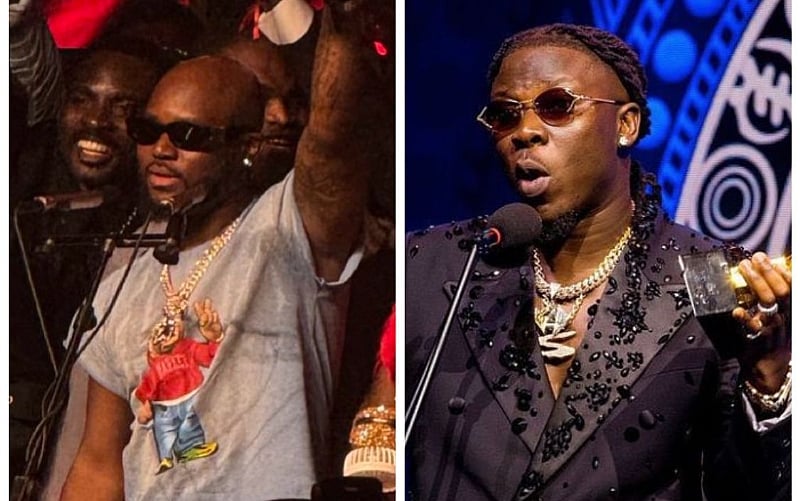The Ghanaian music scene witnessed a subtle yet intriguing drama unfold between two of its biggest stars, Stonebwoy and King Promise, centered around the prestigious Telecel Ghana Music Awards (TGMAs) Artiste of the Year title. The apparent tension began brewing in 2024, a year marked by a particularly fierce competition for the coveted award. Both artists were frontrunners, each boasting impressive musical achievements: Stonebwoy with his critically acclaimed “5th Dimension” album, a collection of chart-topping hits, and King Promise with the infectious and ubiquitously popular single, “Terminator.” The industry buzzed with anticipation, divided in their predictions, as fans and pundits passionately championed their respective favorites. The 2024 TGMAs culminated in Stonebwoy’s victory, securing him another Artiste of the Year accolade. Following the announcement, King Promise, adhering to customary etiquette, extended his congratulations via a tweet. However, this seemingly innocuous gesture became the first domino in a series of unacknowledged online exchanges.
Stonebwoy later acknowledged seeing the congratulatory message but attributed his lack of response to the overwhelming influx of messages received. While this explanation appeared plausible on the surface, it subtly hinted at a possible underlying tension between the two artists. The unanswered tweet became a silent footnote in their burgeoning rivalry, a subtle yet perceptible shift in their public interactions. This seemingly minor incident foreshadowed a deeper narrative that would play out in the following year’s awards.
The 2025 TGMAs witnessed a repeat of the previous year’s scenario: Stonebwoy and King Promise locked in a head-to-head battle for the Artiste of the Year title, this time joined by rising star King Paluta, known for his hits “Aseda” and “Makoma.” However, this year the tables turned. King Promise emerged triumphant, claiming his first-ever Artiste of the Year award, adding to a collection that included the Afrobeats Artiste of the Year title. This victory marked a significant milestone in his career, solidifying his position as a leading force in the Ghanaian music industry.
Following King Promise’s win, Stonebwoy reciprocated the previous year’s gesture, posting a congratulatory message on X (formerly Twitter). However, his message carried a subtly different tone. The phrase, “You’re welcome,” appended to the congratulatory message, added a layer of ambiguity, leaving room for interpretation. Was it a genuine welcome to the exclusive club of Artiste of the Year winners or a thinly veiled assertion of seniority and past achievements? This seemingly innocuous addition fueled speculation about the underlying dynamic between the two artists, prompting discussions among fans and industry observers.
Adding another layer to the unfolding narrative, King Promise, mirroring Stonebwoy’s previous actions, chose not to publicly acknowledge the congratulatory message. More than 72 hours after the post, his silence spoke volumes, echoing the unanswered tweet from the previous year. When questioned about his lack of response during an interview on Hitz FM, King Promise’s reticence to address the issue further fueled the speculation. His simple statement, “I don’t want to speak about it,” did little to quell the growing narrative of a silent rivalry.
The seemingly trivial exchange of unanswered congratulatory messages became a symbolic representation of a potentially deeper, unspoken dynamic between the two artists. While neither Stonebwoy nor King Promise explicitly addressed the perceived tension, their actions, or rather inactions, spoke louder than words. The unanswered tweets, the ambiguous phrasing, and the refusal to comment all contributed to a sense of underlying rivalry, a silent competition playing out in the public eye. This subtle back-and-forth fueled speculation and provided fodder for media and fan discussions, adding an extra layer of intrigue to the Ghanaian music scene. The unanswered messages became more than just social media etiquette; they became symbols of a complex, unspoken narrative between two of Ghana’s biggest music stars.














